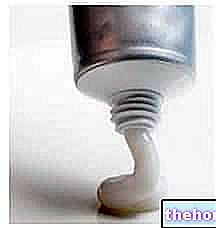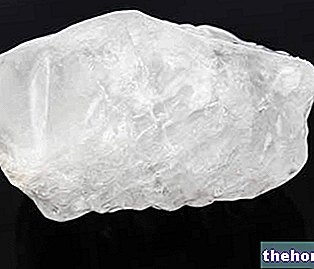What is that
Hydroxyproline is known to be one of the main amino acids that contribute to the formation of collagen, the most abundant protein in the body as a primary constituent of bones, skin and connective tissues in general.

Hydroxyproline constitutes roughly 9-15% of the amino acids that form collagen and is the most represented within this protein together with glycine.
Summary and Functions
Synthesis and Role of Hydroxyproline in the organism
The organism synthesizes hydroxyproline through the hydroxylation of proline in the presence of ascorbic acid (vitamin C). If the latter is missing, the synthesis of collagen is compromised together with its structural integrity; consequently the typical symptoms of scurvy appear: gingival bleeding, bruising and multiple hemorrhages, delayed wound healing and anemia. Not surprisingly, hydroxyproline plays an important role in the formation and stabilization of the triple helix that characterizes the molecular structure of collagen, protecting it from the degradation of proteolytic enzymes.
Did you know that ...
Hydroxyproline is commonly present inside the urine and the alteration of the normal values of hydroxyprolinuria can indicate the possible presence of pathologies. In fact, an increase in urinary hydroxyproline levels may indicate the presence of bone pathologies (such as, for example, osteoporosis) or thyroid pathologies such as hyperthyroidism.
On the contrary, the decrease of hydroxyproline levels in the urine could indicate the presence of other pathologies, such as, for example, hypothyroidism.
Hydroxyproline supplementation
Meaning and Benefits of Hydroxyproline supplementation
Since hydroxyproline is one of the main amino acids that make up collagen and since the latter - at the cutaneous level - helps to ensure support, firmness and hydration to the skin, the integration of hydroxyproline by mouth and its application topical are useful in the prevention and treatment of premature skin aging. With the passing of age, in fact, the concentrations of collagen decrease, the protein assumes a more disordered structure and increases the activity of the enzymes that degrade it; the result is the "skin atrophy typical of aging": the skin thins and wrinkles are highlighted.
In an eight-week double-blind placebo study, the administration of 2 grams per day of hydroxyproline (Luministor® Kyowa) to a group of women over 47 years of age with chronically dry and wrinkled skin significantly increase skin hydration with the perception, by the volunteers, of significant improvements in skin elasticity, dryness and roughness.
In a senior study, topical application of a cream containing 2% hydroxyproline (Luministor ® Kyowa) helped improve skin hydration by reducing fine lines and improving skin elasticity in a group of older women. over 45 years of age who showed moderate signs of skin aging. These effects were enhanced by the addition of low molecular weight hyaluronic acid (1%) and vitamin C (Magnesium ascorbyl phosphate 5%) to the formulation.
Of course, although the use of hydroxyproline-based supplements and cosmetics may prove useful in preventing and combating wrinkles, it must be remembered that the use of these products alone can certainly not work miracles. imperfections of the time, it is first of all essential to adopt a healthy lifestyle (characterized by a balanced diet and a good level of physical activity) and to take care of your skin correctly (use of cosmetics and detergents suitable for your skin type, protection from the sun and other atmospheric agents, etc.).
Finally, again by virtue of its essential role in the correct synthesis of collagen, hydroxyproline can also find space in supplements designed to promote joint health.




























